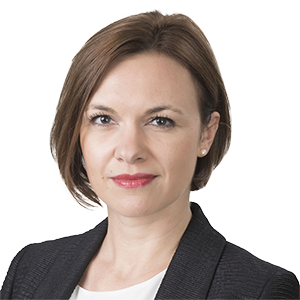
Topic: Distributed ledger technologies blockchain and smart contracts
Subscribe to Distributed ledger technologies blockchain and smart contractsBlockchain law: Will England accept that digital assets are 'property'?
December 12, 2024
To American lawyers it has been fairly obvious that digital assets are “property” for legal purposes, but the English have not been so sure.
Podcast: Unlocking the potential of Web3 and Blockchain with Paul Hsu
December 11, 2024
Sean Murphy is joined by Paul Hsu, CEO of Decasonic to explore Paul’s insights into the rapidly evolving tech landscape, the transformative potential of blockchain technology, and the innovations driving the next phase of Web3.
Blockchain law: When blockchain analytics meet the ‘Daubert’ test
August 01, 2024
Blockchain analysis claims to be able to break through the supposed anonymity of blockchain transactions and identify the individuals involved. But when such analysis is proffered in litigation, can it meet the Daubert gatekeeping test for reliable, admissible evidence under Rule 702 of the Federal Rules of Evidence?
GBBC Future of Finance Conference: Key Takeaways
July 08, 2024
On Thursday 20 June we hosted the Future of Finance Conference with the Global Blockchain Business Council at our offices in London.
Blockchain law: Going after blockchain coders and perhaps even the code?
December 06, 2023
A number of recent cases involving blockchain platforms illustrate the difficulties that sometimes emerge in understanding what roles software coders do and don’t play when it comes to such systems, and thus whether they may potentially be faced with liability.
ESMA reports on DeFi market developments and smart contracts
October 19, 2023
On 11 October 2023, the European Securities and Markets Authority (ESMA) published two articles on decentralised finance (DeFi), one on developments and risks in the EU market and another on a methodology for the categorisation of smart contracts. In these articles, ESMA highlighted risks to consumers, new forms of market abuse, and possible vulnerabilities to financial stability.
ESMA updates Q&As on the implementation of Regulation (EU) 2022/858 on a pilot regime for market infrastructures based on distributed ledger technology
June 08, 2023
On 2 June 2023, the European Securities and Markets Authority (ESMA) updated its Q&As on the implementation of Regulation (EU) 2022/858 on a pilot regime for market infrastructures based on distributed ledger technology. In particular, ESMA has added new Q&As on DLT market infrastructures, cash settlement and exemptions from the Central Securities Depositories Regulation.
ESMA updates Q&As on the implementation of Regulation (EU) 2022/858 on a pilot regime for market infrastructures based on DLT
February 09, 2023
On 3 February 2023, the European Securities and Markets Authority (ESMA) updated its Questions and Answers (Q&As) on the implementation of Regulation (EU) 2022/858 on a pilot regime for market infrastructures based on distributed ledger technology (DLT).
Blockchain law: Can there be law without people?
February 08, 2023
Two seemingly unrelated recent developments in the world of blockchain are now posing the same odd question: Can there be law without people?
ESMA publishes final report on guidelines on standard forms, formats and templates to apply for permission to operate a DLT market infrastructure
December 20, 2022
On 15 December 2022, the European Securities and Markets Authority published a final report containing guidelines on standard forms, formats and templates to apply for permission to operate a Distributed Ledger Technology market infrastructure (DLT MI).





